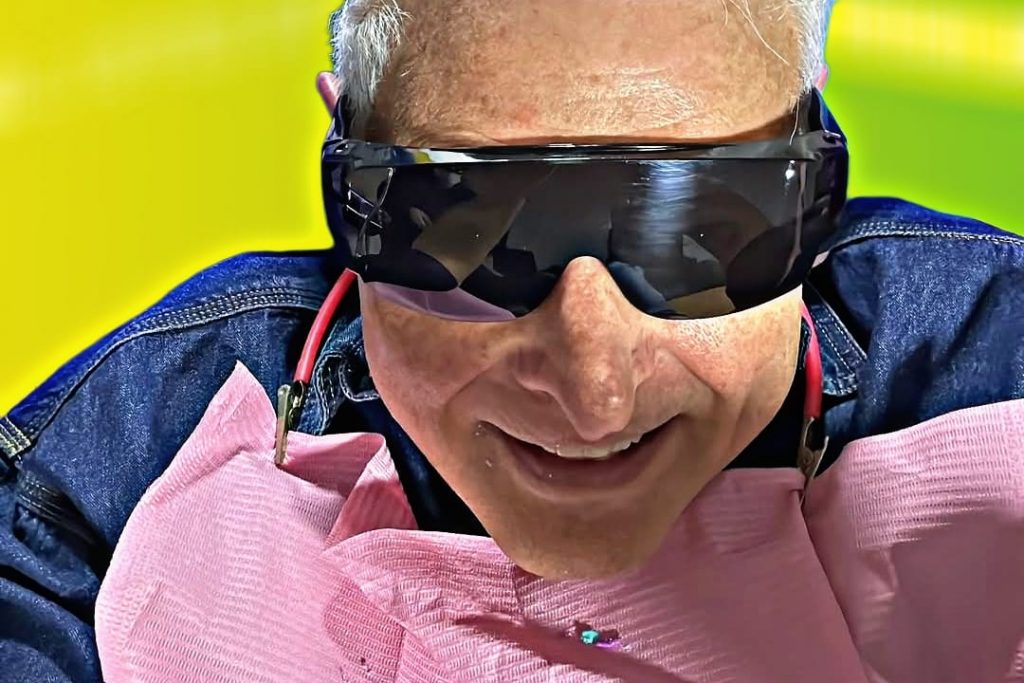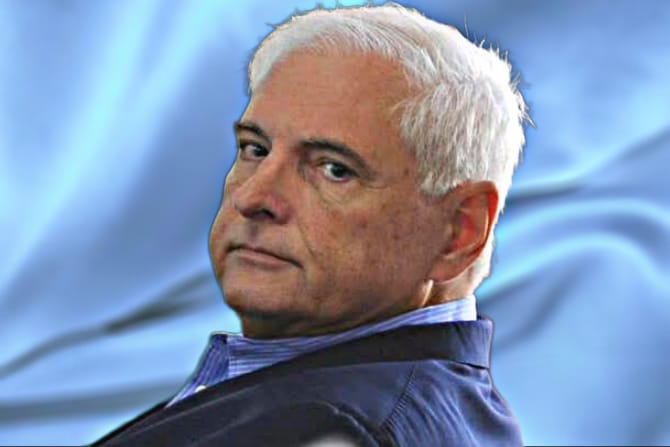Ricardo Martinelli, Panama’s 44th president, stands as one of the most polarizing figures in the nation’s modern political landscape. From his rise in business to the heights of political power, his tenure left an indelible mark on Panama, with both ardent supporters praising his accomplishments and vocal critics condemning his controversial actions. This article delves into the life, career, controversies, and lasting legacy of Ricardo Martinelli, providing an in-depth analysis of his influence on Panamanian politics and society.
Early Life and Business Career

Ricardo Alberto Martinelli Berrocal was born on March 11, 1952, in Panama City, Panama. He hails from a family with a history of business dealings, and Martinelli himself quickly emerged as a successful entrepreneur. Before entering the world of politics, Ricardo Martinelli amassed significant wealth through a variety of business ventures, particularly in the retail and telecommunications sectors.
One of Ricardo Martinelli most notable achievements in the business world was the founding of Super 99, a supermarket chain that became one of Panama’s largest. His knack for expanding and capitalizing on consumer demand turned Super 99 into a dominant player in the market, and this success helped cement his financial standing. In addition, Martinelli’s acquisition of the country’s major cable television company, Cable Onda, played a key role in his rise to political prominence. His success in these industries gave him not only financial clout but also influence over the media landscape in Panama.
Entering Politics: A Political Outsider

Ricardo Martinelli’s foray into politics came in the early 2000s. Though he had no prior experience in public office, he sought to leverage his business background to present himself as an outsider, someone who could bring a fresh approach to the often-corrupt world of Panamanian politics. In 2004, he made his first attempt at running for president, but was unsuccessful.
However,Ricardo Martinelli did not give up on his political ambitions. His vision of transforming Panama into a prosperous, modern nation resonated with many, especially those frustrated with the entrenched political class. In 2009, he ran again for the presidency, this time with greater success. With his business acumen and an appeal to voters tired of traditional politics, Ricardo Martinelli was elected president with a broad mandate. His campaign slogan, “Let’s go for more,” emphasized his focus on development and economic growth, positioning him as a reformer who would put Panama on the map as a major regional power.
Presidency: A Legacy of Infrastructure and Economic Growth

Ricardo Martinelli served as president of Panama from 2009 to 2014. His tenure was marked by ambitious infrastructure projects and a focus on improving Panama’s economy. Under his leadership, the country experienced one of its most significant periods of economic growth in recent history. Panama’s economy grew at an average rate of 8% per year during Ricardo Martinelli presidency, largely driven by the expansion of the Panama Canal, a booming construction sector, and increased foreign investment.
Panama Canal Expansion
One of the cornerstones ofRicardo Martinelli presidency was the continued expansion of the Panama Canal. The $5.2 billion project, which began in 2007 under his predecessor, was completed in 2016, but Martinelli’s government played a crucial role in overseeing the final phases. The expansion allowed the canal to accommodate larger ships, known as “Panamax,” and solidified Panama’s position as a vital global trade hub.
The expansion was a significant factor in Panama’s rising prominence in international commerce, contributing to its increasing GDP and the construction boom that followed. The increased capacity of the Canal attracted more global shipping companies, which further enhanced Panama’s economy and strengthened its position as a logistics and financial center in Latin America.
Infrastructure and Urban Development
In addition to the Canal expansion, Ricardo Martinelli administration embarked on a massive infrastructure development agenda. He prioritized public works, building new highways, bridges, and urban development projects across the country. Among the most notable initiatives were the construction of the Metro de Panamá, the first-ever metro system in Central America, and the expansion of Panama City’s road network to ease congestion.
Ricardo Martinelli government also invested in modernizing the country’s energy infrastructure, with a focus on renewable energy sources such as wind and solar power. While critics later argued that the benefits of some of these projects were not evenly distributed, many of these initiatives were seen as key steps in transforming Panama into a modern, efficient, and globally connected nation.
Controversies and Allegations of Corruption

Despite the positive developments during his presidency, Ricardo Martinelli time in office was marred by allegations of corruption, abuse of power, and human rights violations. His political career became defined by legal troubles and accusations of wrongdoing, which ultimately led to his downfall.
Wiretapping Scandal
Perhaps the most infamous scandal of Ricardo Martinelli presidency was the wiretapping scandal. In 2014, it was revealed that Martinelli’s government had engaged in extensive illegal surveillance of political opponents, journalists, business leaders, and even members of the clergy. The National Security Council, under Ricardo Martinelli direct supervision, had allegedly authorized the wiretapping of more than 150 people without legal justification, raising concerns about civil liberties and the rule of law.
This led to widespread protests and calls for accountability. Ricardo Martinelli opponents accused him of using the state apparatus to stifle dissent and to manipulate public opinion. The scandal was emblematic of the increasingly authoritarian tendencies that many believed defined his administration.
Corruption and the “Blue Apple” Scandal
In addition to the wiretapping issue, Ricardo Martinelli was implicated in various corruption schemes during his time in office. One of the most notorious cases was the Blue Apple scandal, which involved the embezzlement of public funds through inflated contracts and kickbacks. It was alleged that Martinelli’s government had used a network of companies to funnel money from state contracts into personal accounts, enriching a small group of businessmen close to the president.
The scandal came to light after a whistleblower revealed documents detailing the illegal payments. Multiple investigations were launched, but critics claimed that the investigations were often stymied by political interference. Ricardo Martinelli critics argued that his ties to the business community allowed him to avoid accountability for these actions during his presidency.
Legal Issues and Extradition to Panama
After his term ended in 2014, Ricardo Martinelli fled Panama for the United States to avoid prosecution. In 2018, he was arrested in the U.S. on charges related to corruption and wiretapping. Following years of legal battles, Ricardo Martinelli was extradited back to Panama in 2018 to face charges of embezzlement and abuse of power.
In 2020, he was acquitted of the charges related to the wiretapping scandal due to a legal technicality, but the legal proceedings against him continued in other cases. As of now, Martinelli’s legal saga is far from over, and his controversial legacy remains a topic of debate in Panama.
Political Influence and Legacy
Ricardo Martinelli’s legacy is a mixture of achievements and controversies. On one hand, he transformed Panama into one of Latin America’s fastest-growing economies and invested heavily in infrastructure and modernization. On the other hand, his time in office was characterized by significant political polarization, accusations of authoritarianism, and widespread corruption.
Ricardo Martinelli influence on Panamanian politics did not end with his presidency. He remained an active figure in the country’s political landscape, and in 2019, he successfully ran for a seat in Panama’s National Assembly, despite his legal troubles. His return to politics was controversial, with many viewing it as a way for him to continue exerting influence and protect himself from prosecution.
His supporters argue that Ricardo Martinelli business-driven approach helped Panama become a more prosperous and globally competitive nation. They point to the country’s economic growth, infrastructure developments, and modernization during his presidency as key achievements.
However, his detractors continue to view him as a figure who used his wealth and power to enrich himself and his allies while undermining democratic institutions and engaging in widespread corruption. The wiretapping scandal, the Blue Apple case, and other allegations have left a stain on his political career, and many argue that these issues overshadow the more positive aspects of his presidency.
Conclusion
Ricardo Martinelli’s presidency will forever be a topic of debate in Panama’s history. His rise from a successful businessman to the president of the country is a testament to the potential of Panama’s political system, but his time in office also exposed deep flaws within that system. Ricardo Martinelli efforts to modernize the nation and spur economic growth were undeniable, but his controversial actions, particularly with regard to corruption, abuse of power, and civil rights violations, have made him a deeply divisive figure.
Whether viewed as a visionary leader or a corrupt authoritarian, Ricardo Martinelli’s legacy will continue to shape the future of Panama for years to come. His story is a reminder of the complexities of power, the fine line between success and scandal, and the enduring struggle for accountability in modern politics.

